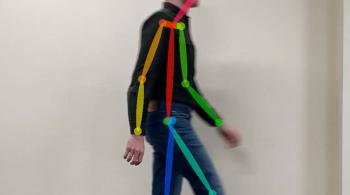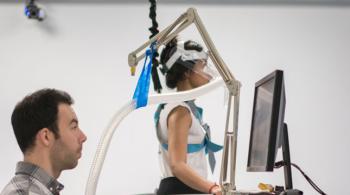At the Center For Movement Studies, our researchers are focused on understanding how complex movements are normally learned and controlled, and how damage to specific brain areas impairs these processes.
Human movement control is complex—over 600 muscles act in concert to control the movement of hundreds of bones. Yet, the nervous system controls everyday movements like tying your shoes or running up the stairs in an effortless manner. Movements are also constantly adapted or changed through experience—consider how you quickly learn to drive a friend's car or control your computer mouse when the speed settings are changed.
We normally take for granted the processes that simplify movement control, only becoming aware of the challenges that face the nervous system when something goes wrong. At the Center For Movement Studies, our researchers are focused on understanding how complex movements are normally learned and controlled, and how damage to specific brain areas impairs these processes. We are also interested in understanding how the brain integrates information about rewards to motivate performance. One of our goals is to work towards devising rational rehabilitation approaches based on our understanding of these issues.
We currently study performance and learning of reaching and walking movements in healthy adults and children, and in different patient populations including: adults and children with cerebellar damage, adults with hemiparesis from stroke, adults with multiple sclerosis or adrenomyeloneuropathy, children with hemispherectomy, children with cerebral palsy and children with autism. All studies are designed to test specific hypotheses about the function of different brain areas, the cause of specific impairments and/or the effects of different interventions.










